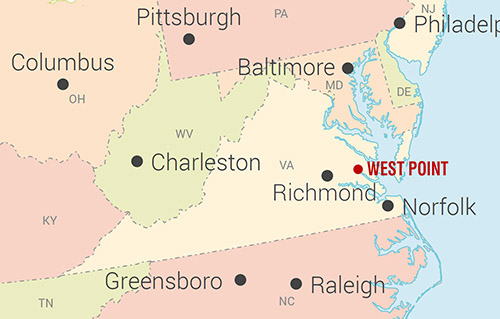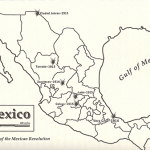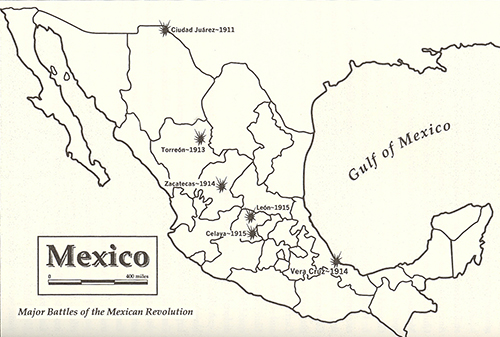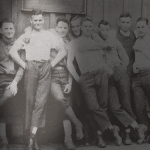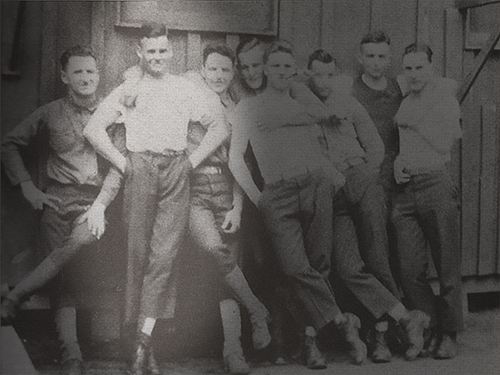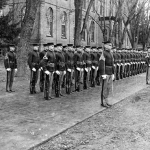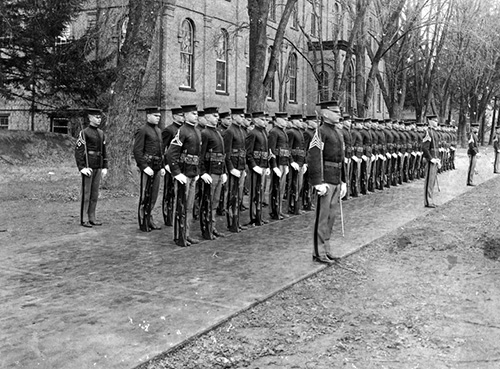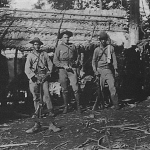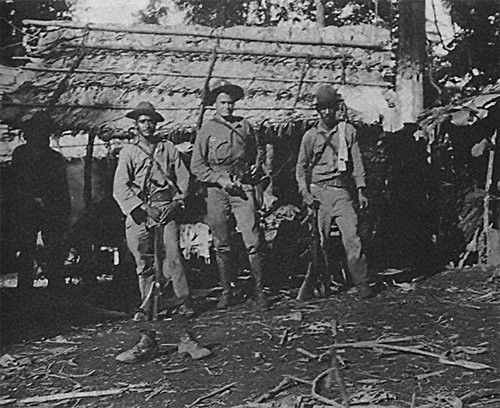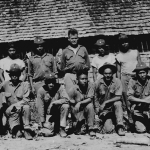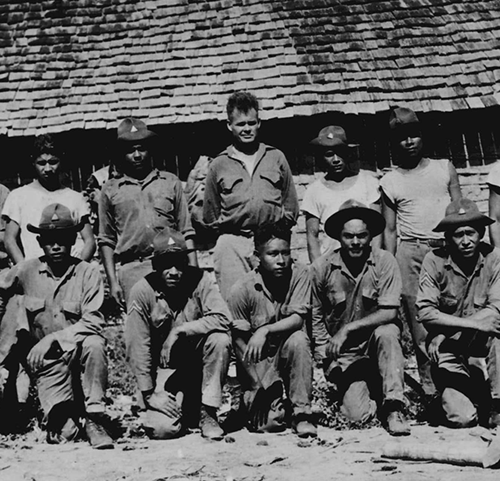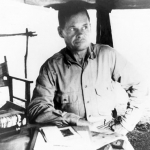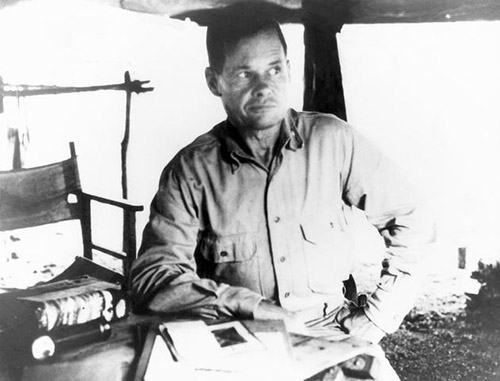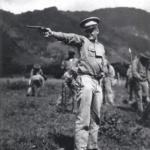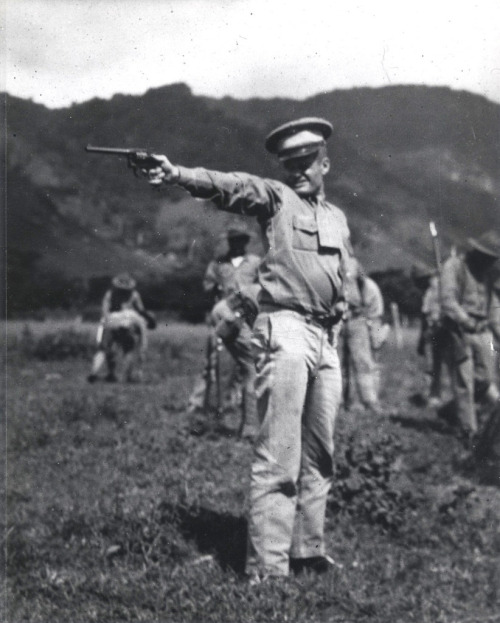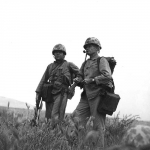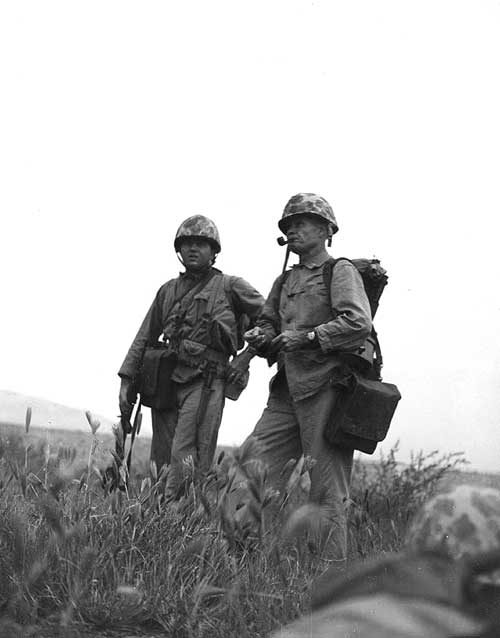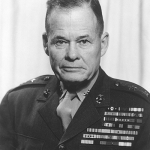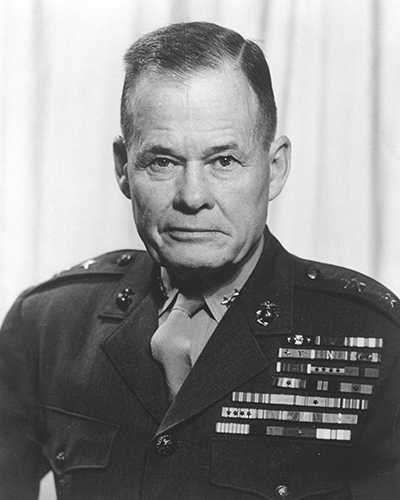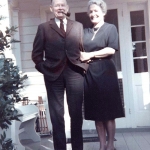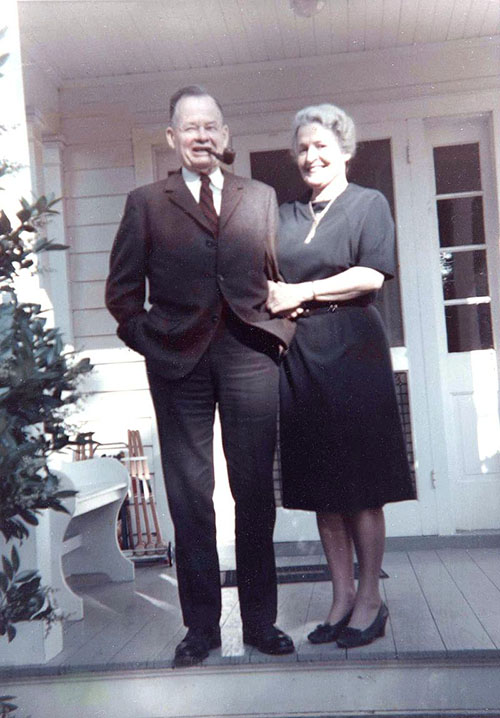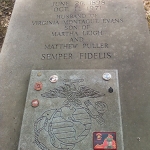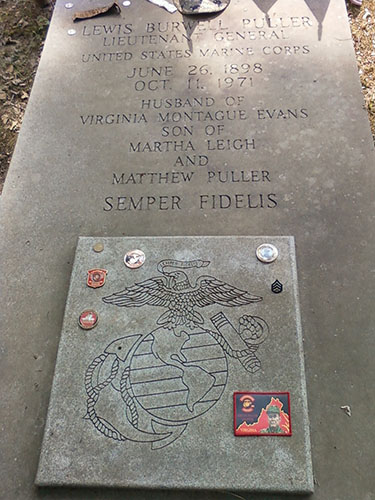Lieutenant General Lewis Burwell ‘Chesty’ Puller
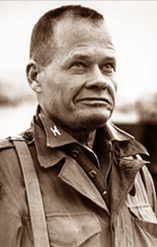
Biography
Lieutenant General Lewis Burwell Puller is a legend among the Marine Corps. He is held in high esteem for all his heroic acts. Marines have several adages and mottos that honor the late Lieutenant General; Marine boot camps will often end their nights with a "Good night, Chesty Puller, wherever you are!". He provided thirty-seven years of his life to the United States Military.
Puller was born on June 26th, 1898 in West Point, Virginia (not to be confused with the location in New York that is home to the prestigious military academy.) He was born to Matthew and Martha Puller. His father unfortunately died when Puller was at the young age of ten. As a child Puller soaked up stories of the Civil War. He could not get enough of hearing about Stone Wall Jackson, who became an icon to him.
When American was involved in a struggle with Mexico in 1916, Puller was motivated to join the Army, However he was too young to volunteer himself and needed parental consent. His mother, already having lost her husband, would not authorize her son to enter the war. Two years later Chesty got to pursue his calling.
In 1918 the young man attended the Virginia Military Institute. However, the country was in the midst of World War I and Puller was dissatisfied with the lack of action at the institute. Puller was eager to get in the midst of it and was quoted as saying that he wanted to "go where the guns are!".
Later in 1918 he joined the marines and was enlisted at the private position. He attended boot camp in South Carolina. Unfortunately due to timing he never got to see combat during World War I. However, at the time the Marines were expanding and he got to go to a non-commissioned officer school after boot camp. In June of 1919 he graduated from the officer school and was appointed to the position of Second Lieutenant in the reserves. The war officially ended and he was placed in inactive status.
In 1922 he served in the war with Haiti. He served in the Gendarmerie d'Haiti as a lieutenant. He served as the adjutant to Major Alexander Vandegrift, who would go on to be the future commandant of the Marine Corps.
In 1924 Puller returned to the United States and served with a marine regiment in Quantico, Virginia. In 1926 he was stationed in Pearl Harbor in Hawaii. In 1928 he was stationed in San Diego, California and in December of that year he was sent to serve on the Nicaraguan National Guard.
In Nicaragua Chesty earned his first Navy Cross for leading five successful engagements. In July of 1931 Puller was sent to more officer training in Georgia and then returned to Nicaragua where he earned another Navy Cross for his excellent leadership and service. Due to his competency in Nicaragua, Puller was sent to deal with the conflicts in China.
In 1936 Puller finally returned to the United states. Puller worked in Philadelphia as a teacher at the basic school. However, three years later in 1939, Puller returned overseas and served as the commanding officer of the 2nd Battalion 4th Marines in China.
In 1942, a few years into World War II and near the start of the Pacific Theater, Puller was assigned to defend Samoa with the 3rd Marine Brigade. In September of that year he was reassigned to Guadalcanal. Puller made himself almost immediately useful and helped to keep losses down. In 1944, after his time served in the Pacific Theater he returned to the states. He was given the title of executive officer of the Infantry Training Regiment at Camp Lejeune. He eventually ended up as the commander of the Marine Barracks at Pearl Harbor.
In 1950, once the Korean War began Puller was made commander of the First Marine Regiment. He received his second Legion of Merit for his service provided in the fall of 1950. He returned stateside in 1952 and worked at training camps. In 1953 he was promoted to major general.
Puller worked in the Marine Corps until 1955. He had a stroke in February 1955 and eventually retired at the rank of lieutenant general in November of that year. In 1971 Lieutenant General Lewis Burwell Puller passed away on October 11th. Puller lives on in Marine Corps culture and is greatly respected for his efforts to improve the working conditions for the Marine Corps. He lives on in the memories of Marines across the United States.
Lieutenant General Lewis Burwell Chesty Puller's Ribbon Rack
Hover over or click award for more information.


















































